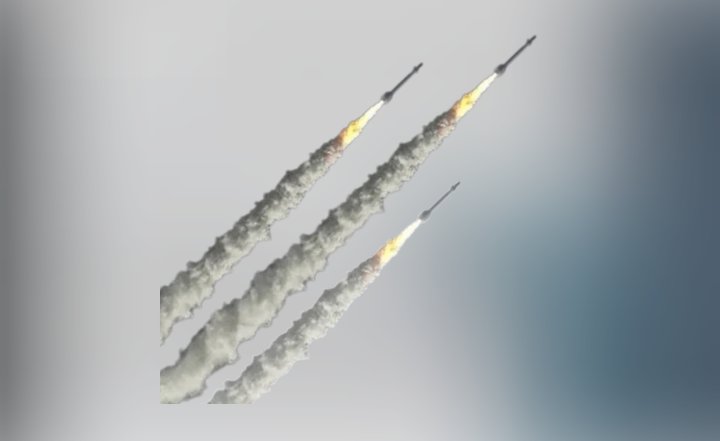HNOVANEWS

The CIA in Lebanon is going into damage control after Hezbollah recently exposed more details about alleged CIA activities. Many are, however, asking why Hezbollah went public with such valuable information.
The CIA’s alleged station chief in Lebanon, Daniel Patrick Mcfeely, called on a number of his ‘friends’ last week. Evidently his aim was to try to reduce the impact of Hezbollah’s latest series of revelations about US intelligence activity in Lebanon.
According to details leaked from these meetings, Mcfeely maintained that everything that has been published about the affair is unfounded – not just the claims made by Hezbollah and its secretary general, but also the reports in the US press quoting official Washington sources.
He stressed that the CIA does not normally confirm or deny reports about its clandestine activities. But his interlocutors do not recall him commenting on the fact that official sources in his country did confirm the reports from Lebanon and Iran that CIA networks had been uncovered by Hezbollah and Iranian intelligence.
Mcfeely also reportedly said that the Beirut station he heads is not in the business of recruiting and running networks of agents in Lebanon, but confines its activities to liaising and exchanging information with Lebanese security agencies.
The alleged CIA station chief’s damage control exercise aside, the key question in this affair relates to Hezbollah. Why has it chosen to go public with the information its intelligence apparatus collected about US spying activities in Lebanon?
Hezbollah’s Manar TV channel screened a documentary last Friday which featured alleged details of the identities of US intelligence officers operating in Lebanon, their modus operandi, and some of the locations where handlers would meet their agents.
It also claimed that the information the CIA tasks its agents to gather in Lebanon is routinely passed on to Israeli intelligence, and that the American agents handed control of some of their Lebanese networks over to the Israelis.
Sources familiar with Hezbollah’s thinking see these revelations as being aimed at sending out a number of messages.
The first and most obvious message they see is that Hezbollah’s intelligence apparatus knows about the CIA’s activities in Lebanon, and has its officers and agents under surveillance and control.
Second, that the US administration is Israel’s partner in crimes committed on Lebanese soil – whether waging wars, or carrying out bombings and assassinations.
The third signal these sources think Hezbollah may be trying to send is that US diplomatic activity in Lebanon is inseparable from intelligence activities – and that this makes it incumbent on the Lebanese state to take appropriate measures.
The fourth and perhaps the loudest message may be that it is no longer permissible for the CIA to act as an adjunct for Israeli intelligence in Lebanon, as has been the case since the 1980s.
According to these sources this also applies to the other Western intelligence agencies that extend information and ‘logistical’ support to the Israelis – such as facilitating travel by Israeli intelligence agents from Lebanon to Europe to meet their handlers.
This support has been provided by Western embassies in Beirut, as has been documented in Lebanese judicial investigations of many cases in which people have been arrested on suspicion of spying for Israel.
A further possible explanation posited by these sources is that the resistance wants to force the Americans to have to rethink the basis and aims of their entire intelligence operation in Lebanon – and to keep them busy for a long time: assessing the damage they sustained, re-vetting their agents, reviewing their procedures, and trying to find the breach which the resistance used to expose some of their actions.
The sources stressed that the actual means employed by the resistance will be kept a closely guarded secret.
Hezbollah MP Nawwaf al-Mousawi’s appearance on Lebanese Broadcasting Corporation (LBC) Monday seemed very much in line with the above. Providing further details of the case, Mousawi said CIA agents in Lebanon had been given hi-tech devices that can be concealed in watches or phones, used for pinpointing certain locations.
He stressed that this was not just about gathering information, but preparing for acts of terrorism and aggression, be they assassinations, bombings, or future Israeli military assaults.
Mousawi also revealed that US intelligence agents used to frequently meet with their agents in restaurants and nightclubs in Dbayeh and Jounieh, north of Beirut, after first attempting to cover their tracks in the Byblos area.
He had a blunt message for the Americans and their agents: “We know what they are doing, and we can reach further. To the agents who are under surveillance, we say they have an opportunity to surrender themselves to the resistance’s security apparatus or the Lebanese security agencies.”
According to details leaked from these meetings, Mcfeely maintained that everything that has been published about the affair is unfounded – not just the claims made by Hezbollah and its secretary general, but also the reports in the US press quoting official Washington sources.
He stressed that the CIA does not normally confirm or deny reports about its clandestine activities. But his interlocutors do not recall him commenting on the fact that official sources in his country did confirm the reports from Lebanon and Iran that CIA networks had been uncovered by Hezbollah and Iranian intelligence.
Mcfeely also reportedly said that the Beirut station he heads is not in the business of recruiting and running networks of agents in Lebanon, but confines its activities to liaising and exchanging information with Lebanese security agencies.
The alleged CIA station chief’s damage control exercise aside, the key question in this affair relates to Hezbollah. Why has it chosen to go public with the information its intelligence apparatus collected about US spying activities in Lebanon?
Hezbollah’s Manar TV channel screened a documentary last Friday which featured alleged details of the identities of US intelligence officers operating in Lebanon, their modus operandi, and some of the locations where handlers would meet their agents.
It also claimed that the information the CIA tasks its agents to gather in Lebanon is routinely passed on to Israeli intelligence, and that the American agents handed control of some of their Lebanese networks over to the Israelis.
Sources familiar with Hezbollah’s thinking see these revelations as being aimed at sending out a number of messages.
The first and most obvious message they see is that Hezbollah’s intelligence apparatus knows about the CIA’s activities in Lebanon, and has its officers and agents under surveillance and control.
Second, that the US administration is Israel’s partner in crimes committed on Lebanese soil – whether waging wars, or carrying out bombings and assassinations.
The third signal these sources think Hezbollah may be trying to send is that US diplomatic activity in Lebanon is inseparable from intelligence activities – and that this makes it incumbent on the Lebanese state to take appropriate measures.
The fourth and perhaps the loudest message may be that it is no longer permissible for the CIA to act as an adjunct for Israeli intelligence in Lebanon, as has been the case since the 1980s.
According to these sources this also applies to the other Western intelligence agencies that extend information and ‘logistical’ support to the Israelis – such as facilitating travel by Israeli intelligence agents from Lebanon to Europe to meet their handlers.
This support has been provided by Western embassies in Beirut, as has been documented in Lebanese judicial investigations of many cases in which people have been arrested on suspicion of spying for Israel.
A further possible explanation posited by these sources is that the resistance wants to force the Americans to have to rethink the basis and aims of their entire intelligence operation in Lebanon – and to keep them busy for a long time: assessing the damage they sustained, re-vetting their agents, reviewing their procedures, and trying to find the breach which the resistance used to expose some of their actions.
The sources stressed that the actual means employed by the resistance will be kept a closely guarded secret.
Hezbollah MP Nawwaf al-Mousawi’s appearance on Lebanese Broadcasting Corporation (LBC) Monday seemed very much in line with the above. Providing further details of the case, Mousawi said CIA agents in Lebanon had been given hi-tech devices that can be concealed in watches or phones, used for pinpointing certain locations.
He stressed that this was not just about gathering information, but preparing for acts of terrorism and aggression, be they assassinations, bombings, or future Israeli military assaults.
Mousawi also revealed that US intelligence agents used to frequently meet with their agents in restaurants and nightclubs in Dbayeh and Jounieh, north of Beirut, after first attempting to cover their tracks in the Byblos area.
He had a blunt message for the Americans and their agents: “We know what they are doing, and we can reach further. To the agents who are under surveillance, we say they have an opportunity to surrender themselves to the resistance’s security apparatus or the Lebanese security agencies.”



